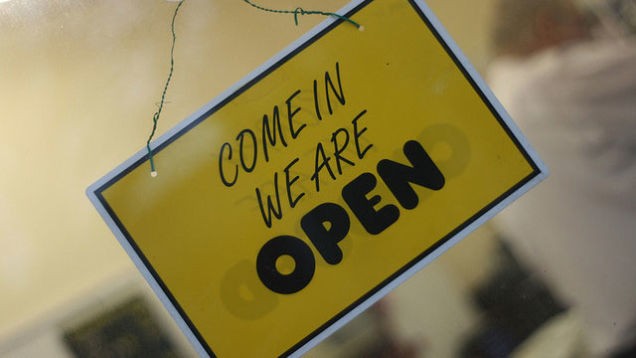Build My Online Store How Bitcoin Works And The Impact To ECommerce Build My Online Store
Post on: 26 Май, 2015 No Comment

How Bitcoin Works And The Impact To E-Commerce
This telephone has too many shortcomingsthe device is inherently of no value to us. -Western Union, 1876
While theoretically and technically the television may be feasible, commercially and financially it is an impossibility. Lee DeForest, Inventor
By 2005 or so, it will become clear that the Internets impact on the economy has been no greater than the fax machines. Paul Krugman, American Economist
Every major technological development in our modern world has been met with skepticism in its early days, whether it’s the telephone, radio, television, cell phone, or the Internet.
Because of that, I’ve been educating myself on how Bitcoin works, what it does, and who are the winners and losers.
Bitcoin has been commonly hailed as one of the following:
- Digital currency
- New form of email
- PayPal without fees
They are all correct but there’s much more.
It’s difficult to explain new technologies with old paradigms, but the value proposition Bitcoin brings is very similar to the internal combustion engine that was invented in the late 19 th century.
From there, we built cars, trucks, boats, motorcycles, and airplanes from variations of the same invention.
In this post I’ll attempt to explain the basics while giving you my thoughts on how this will impact the future of e-commerce and physical products.
THIS IS NOT FINANCIAL, TAX, OR INVESTMENT ADVICE, SO INVEST AND SPECULATE ON BITCOIN AT YOUR OWN RISK.
This post is broken down into the following parts:
- How We Use Money
- How Bitcoin Works
- Benefits For Consumers
- Benefits For Merchants
- Hurdles to Overcome
- Risks Of Bitcoin
- How To Buy Your First Bitcoin
Before we go into the details of Bitcoin, let’s get a refresher on how our current money system works.
Whether you’re using the United States Dollar, Euro, or Canadian Dollar, there is a central government that regulates the money supply.

We place our trust in government that it will not be counterfeit and will hold value as a financial instrument.
In global commerce, the US dollar and Euro are widely accepted compared to the Argentina Peso, Indonesia Rupiah, or other currencies due to various economic, political, and market factors.
As a result, you have the foreign exchange market where people can switch between different currencies, along with fees made by banks that take part in those transactions.
Each country also has its own rules on moving money in and out of the country, subject to transfer limits, fees, and additional regulations based on politics.
Try sending money to North Korea and you’ll know what I mean.
When you keep your money at a bank and want to invest in stocks, bonds, precious metals, or other forms of investments you need to go through a licensed brokerage to execute the transactions.
Behind these brokerages are huge operations that include traders, analysts, compliance officers, administrative staff, and much more.
When a company like Facebook, Twitter, or LinkedIn goes public through an initial public offering (IPO), investment banks work behind the scenes on pricing the stock, how many shares to offer, and who gets to participate.
For e-commerce merchants, credit card transaction fees range anywhere from 2-3% in developed countries and up to 5% in other parts of the world. Beyond merchant fees, there are also fraud responsibilities and chargebacks to worry about.
To move money between accounts, it also takes 3-4 business days and is subject to withholding at your bank’s discretion.
When you donate money to the Red Cross or other forms of charity, there is a huge organization it must support before the money reaches its victims.
In unfortunate cases, it never gets there because of corrupt local officials that pocket it.
For immigrants working in developed countries that send their income back home to family, the intended amount never fully arrives due to fees and other remittance costs that can get up to 30%.
In financial planning where wills, property deeds, and transfer of assets are involved one must have an expensive team of lawyers, accountants, and wealth managers for proper execution.
Every transaction listed above has an inherent friction in labor, regulation, or bureaucracy.
Bitcoin eliminates all of them.
This is how Bitcoin works at a very high level.
Bitcoin is not just money its an invention that allows people to move value around the internet.
It democratizes money by separating it from a function of power by governments, to an exchange between two individual people.
Think of it as the internet of money.
Like the invention of the internal combustion engine, we built cars, trucks, boats, motorcycles, and airplanes.
Like the invention of the internet, we built email, instant messaging, social media, blogs, SaaS apps, and e-commerce.
By signing up for a Bitcoin wallet, you can have access to instant peer-to-peer transactions, worldwide payments, with zero to no transactions fees.
There is no central government or bank managing the money, and nobody owns it or controls it like a country’s currency.
Everyone can participate whether you are a billionaire or a high school student, and money can be sent from North America to New Zealand in about 10 minutes.
If you’re still with me, the potential for disruption is HUGE.
There are three main components of a financial exchange account balances, transactions, and processing. Bitcoin functions the same way, but with a different set of terms and technologies used to define them.














